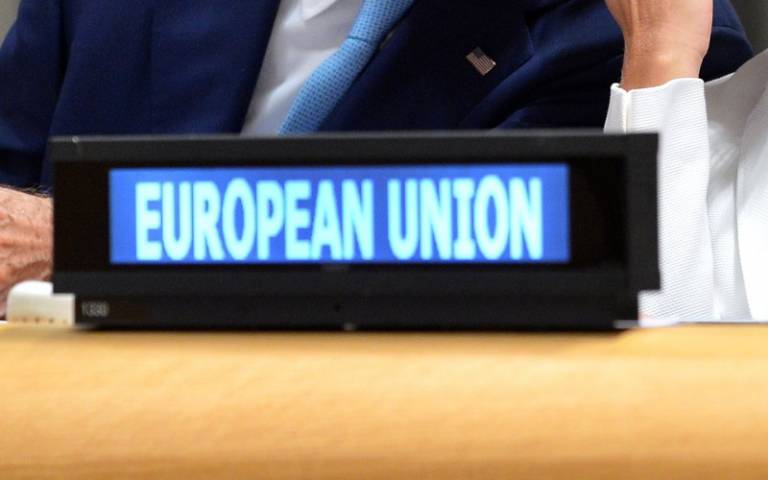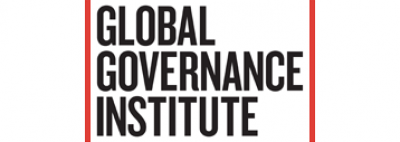How Do Diplomats Know What They Know? Expertise and Authority in Europe's External Relations
24 October 2016
Julia Kreienkamp (GGI Research Assistant) on a GGI keynote lecture with Professor Merje Kuus.

Expert knowledge is central to making European integration manageable. As EU policy-making becomes increasingly complex and EU diplomacy undergoes substantial change, it may be more important than ever to understand where and how knowledge is produced; whose expertise matters and why. To discuss these questions, the Global Governance Institute recently hosted Merje Kuus, a political geographer and professor at the University of British Columbia who has spent many years studying transnational decision-making in Europe and the role of knowledge production in diplomacy.
Drawing on more than 150 qualitative interviews conducted with nearly 100 European foreign affairs professionals over the course of almost ten years, Kuus argued that we need to understand diplomacy not just as an administrative but also as an intellectual and social practice. Successful diplomats know things that cannot be "googled" and they rely on social resources that cannot be quantified. The social dimensions of diplomatic expertise and knowledge production can be hard to grasp but they tell us something about the covert power dynamics underlying everyday diplomacy.
The End of Curiosity?
Kuus began her talk by reflecting on the impact of "audit culture" on diplomacy. Foreign affairs professionals operate in an increasingly fast-paced environment that is shaped by the continuous application of measurable standards. While audits are usually presented as a technical mode of regulation, designed to make outcomes more tangible and quantifiable, Kuus argued that auditing is an inherently political process. Not only does it affect outcomes, it also changes the processes of knowledge production that underpin these outcomes.
Many of Kuus' interviewees felt that there is less space for creativity and intellectual curiosity, qualities that are essentially unauditable. As one of them bluntly put it: "People cannot think: it is cut and paste". Another interviewee suggested that new diplomatic recruits are well trained but sometimes lack a deeper understanding of context. Audits cannot capture the complexity of diplomatic knowledge, the need for curiosity, creativity and "the capacity to think". These variables, though extremely hard to measure, are especially important in the context of EU diplomacy and transnational decision-making.
The Making of the "Transnational Diplomat"
Diplomacy has traditionally been the domain of states. Diplomats are trained by states to represent, mediate and advance state interests. The European External Action Service (EEAS) is the first experiment in "transnational diplomacy" - a diplomatic corps representing a non-state subject. National interests, of course, do not disappear in EU diplomacy; rather, distinctions between the national, the international and the transnational are increasingly blurred.
In order to understand the spatial dimensions of diplomatic knowledge production in Europe, Kuus believes we must think beyond state capitals. Diplomatic training increasingly involves non-state actors such as universities, private consultancies or EU institutions. Places such as Bruges, Bologna, Geneva or Maastricht now regularly appear on diplomatic CVs. Identifying the nodes of diplomatic training and knowledge production is important because pre-Brussels socialisation has an impact on who succeeds. Alumni networks, connections and reputation are intangible but crucial resources for any diplomat. In Brussels, strong networks and the ability to leverage them can directly translate into power.
Knowledge Production and Power
Kuus' understanding of power and authority in diplomacy is heavily influenced by the work of Pierre Bourdieu. This implies that diplomatic expertise is less about who knows what than being able to establish new meanings and define new terminology. Successful diplomats have a "feeling for the game", strong social networks and a certain confidence and style. One of Kuus' interviewees put it this way: "Brussels is a tough place. You have to be a very smooth operator."
But becoming a "smooth operator" takes time and it does not come cheaply. Symbolic capital, as Bourdieu would call it, cannot be acquired in an internet crash course. Networks take a long time to build. Prestigious degrees are expensive. Confidence, eloquence and charm can only be built through practice not through theoretical knowledge.
This also helps explaining why the "old" EU member states continue to define the rules of the game in Brussels. Diplomats from richer countries have advantages that go beyond material capabilities. This includes the cultural and intellectual environment they grow up in, the tradition and symbolic strength of their country's foreign ministry as well as access to established training institutions and powerful national networks. Poorer countries, Kuus said, tend to buy expert training; richer countries tend to sell.
More Open-Ended Questions
Kuus ended her talk by emphasizing two key points. First, social and intellectual dynamics of power production are as important as the political and technical aspects. Intangible resources and networks are not just helpful but vital for success.
Second, in this context the analytical categories of power, authority, interests and identities have only limited utility. As EU policy-making becomes increasingly transnational and fluid, binaries such as EU vs. member states, intergovernmental vs. supranational or soft power vs. hard power become increasingly inadequate.
Kuus urged her audience to transcend traditional categories and ask more open-ended questions: How is power is exercised, rather than who has it? What are the nodes of power, rather than in which capitals is power produced? Of course, important questions remain as to how to methodologically approach these questions, how to work with intangible variables such as creativity and how to assess the consequences of social and intellectual power discrepancies. What is clear is that engaging with these questions must be an interdisciplinary endeavour.
Curiosity and creativity are important qualities for diplomats but also for academics. Today, as some are calling into question the future of the European project, these qualities are especially important. But Kuus' findings also matter beyond Brussels. In fact they tell us less about the nature of EU external policy than about power relations more generally. Social-structural (dis-)advantages are not just felt by European diplomats. Examining the relationship between knowledge production and power means taking social and discursive practices in global politics more seriously. It means focusing on the earliest phase of the policy-making process and thinking about whose knowledge defines the analytical frameworks that inform the formulation of concrete policies.
 Close
Close


